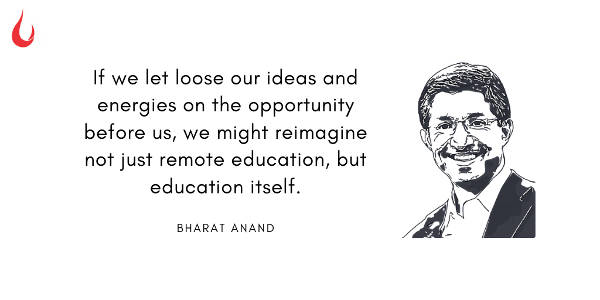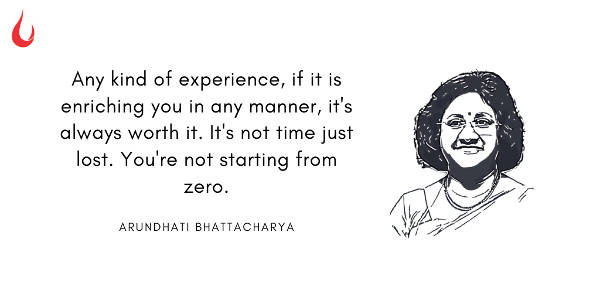[Photo by stem.T4L on Unsplash]
Good morning,
In The High-Potential Leader: How to Grow Fast, Take on New Responsibilities, and Make an Impact, Ram Charan says you cannot disconnect strategy from operations or managing people.
He writes, “the heart of getting things executed well lies in how you work within three core processes that every company has in one form or another: for managing people, strategy, and operations. You have to be involved in all three areas, get information and real dialogue going in them, and recognize the connections among them. Big-picture strategic thinking, for example, is useless unless it takes into account the human capacity you have in terms of the number of people and their skills. Are your software engineers up to speed on algorithms and data analytics if that's the direction you're headed? Operational realities must also be factored into whatever direction you are taking the business. Can you expand manufacturing capacity fast enough to keep pace with the new growth initiative, and do you have the resources to do it? Ideas not linked to practical realities at the ground level are doomed to fail.”
Ram Charan’s advice is good for any day. It’s especially important now when things are moving fast, old assumptions are getting demolished, and an opportunity to reimagine and reshape the world presents itself. To make use of the opportunity, and get things done, all the three—strategy, operations and people management—have to align.
Over the last few weeks, we have been having several conversations with leaders in business and academia to understand what it will take to do that in the world of business schools. The culmination of the conversations will be a Masterclass on The Future of The MBA on 30th June.
If you want to attend it, register here. If you want to participate in the discussions straightaway, join our Slack channel now.
Have a fantastic weekend.
Here are three things we picked up for you today.
Reimagine education
Speaking at Harappa’s online conference The Republic of Letters on Thursday, Bharat Anand, Vice-Provost for Advances in Learning, Harvard University, shared this story about Michael Sandel, a fellow Harvard professor, known for his popular course on justice. Normally, Sandel’s classes take place in Sanders Theatre, filled with students eager to debate and learn ethical ideas such as utilitarianism and universalism.
Recently when Harvard was still under the lockdown, Sandel took a course on pandemic ethics. It was an online course and was attended by over 1,000 students. What’s interesting is, it was also attended by 50 faculty members. Bharat Anand said that it had never happened in the university in the past.

Now, for the next semester, the university is designing new kinds of courses never tried earlier because of the constraints of the physical world. Now, no department is farther than a click away. Taking advantage of it, Harvard will be introducing cross-university, multi-disciplinary courses and also leverage on the geographical spread of its students. The idea is best summarised in the headline and strap of an essay Bharat Anand published in The Boston Globe.
It says: The coronavirus allows us to reimagine the college experience. We can start by turning the residential vs remote comparison on its head and asking, what are the shortcomings of the residential experience and the advantages of the virtual one?
Watch Bharat Anand’s Keynote : It starts at 1:44 and ends at 2:28
Don’t fire—fire up
In a conversation with Sequoia India, Arundhati Bhattacharya, chairman and CEO of Salesforce India and former chairman of State Bank of India, answered a question on the difference in culture between the two organisations, and if lessons from one could be used in another. She said both were essentially service organisations, and both were about how one manages human beings. However, there is a crucial difference between the two.

She said, “In a public sector organisation, once you get into the job, unless there is a malafide intent on your part you cannot really be thrown out. In the private sector, it all depends upon your performance. Now because it's performance dependent, you may not be making that much of an effort to bring an employee up to this full potential. You give up much faster because you say ‘well he is not performing, so out he goes. I'll get somebody better’.
“In the public sector, we have no such option. You have to get that guy up and make him productive. So you know there is a very very deep-rooted development agenda that we have, which if you transfer into the new working place, it's going to work very well. Because at the end of the day, every time you fire a person, no matter whether he is good or bad, you are actually wasting money because you spent money training him. He's gotten to know your organization. Now you're going to pick up somebody else and you have to give that person a 90-day or 180-day learning curve. So that's money actually going out.
“So instead of that if you're able to help your present employee, if you're able to determine what his strong points are, fit him into a role that fits his abilities better, and then coach and mentor them, then you have a far greater chance of you actually saving money for the company.”
Be kind, whenever possible
(And it’s always possible, says The Dalai Lama.)

(Via WhatsApp)
What’s your favourite random act of kindness? Mail your story to us. Or share it on Twitter, tagging @foundingf. Or head to our Slack channel..
And if you missed previous editions of this newsletter, they’re all archived here.
Bookmark Founding Fuel’s special section on Thriving in Volatile Times. All our stories on how individuals and businesses are responding to the pandemic until now are posted there.
Warm regards,
Team Founding Fuel


